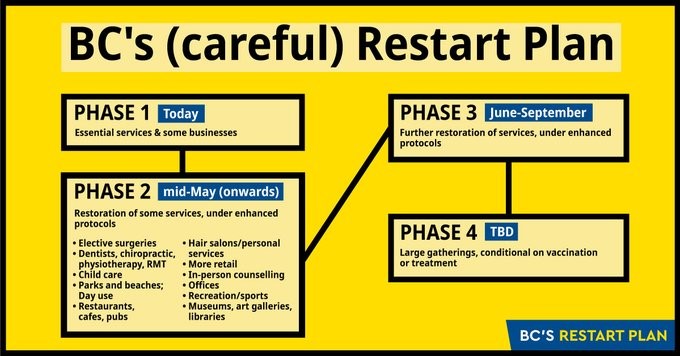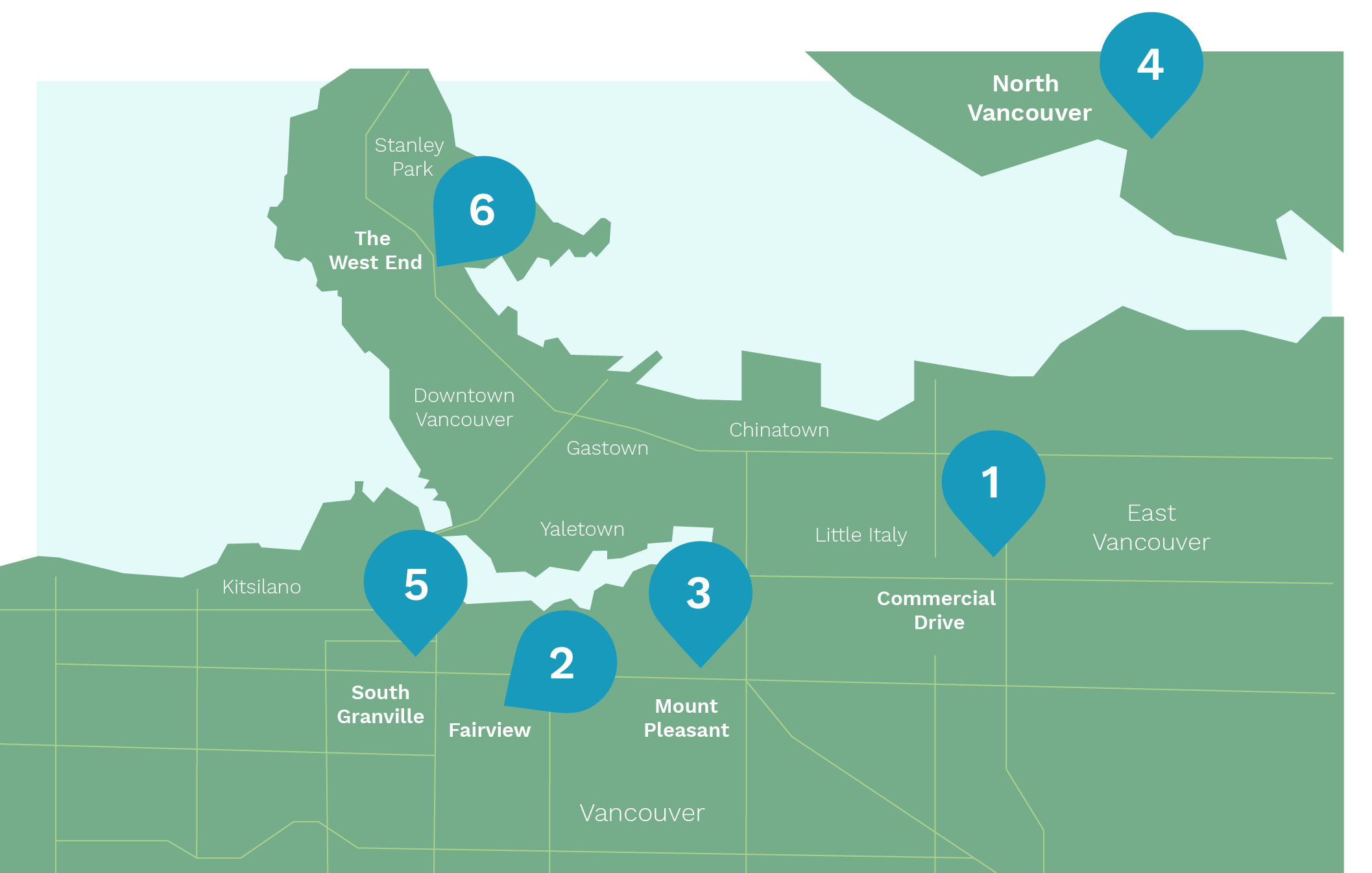
BC’s Restart Plan
BC’s Restart Plan lays out a series of steps that we will take together to protect people and ensure that our province can come back from COVID-19 stronger than before.
Phase 1
Where we are today
Essential Services Operating During COVID-19
- Essential health and health services
- Law enforcement, public safety, first responders and emergency response personnel
- Vulnerable population service providers
- Critical infrastructure
- Food and agriculture service providers
- Transportation
- Industry and manufacturing
- Sanitation
- Communications and information technology
- Financial institutions
- Other non-health essential service providers
Industries that were designated as essential services developed safe operation plans in consultation with WorkSafeBC and in compliance with the public health orders issued by the Provincial Health Officer.
As a result, B.C.’s economy has continued to operate in ways other provinces haven’t. But it’s undeniable that local businesses have suffered.
Many businesses closed for other reasons, including reduced demand, such as in the retail, hospitality and export industries. Others closed to do their part in helping to flatten the curve, protecting their customers and employees.
To help these businesses and other organizations get back on their feet, we need workplace practices that ensure British Columbians feel safe, whether they are returning to work or going out as a customer. That means employers will need to engage with their employees to find the right solutions and consider the concerns and needs of their customers.
Phase 2
Mid-May onwards
Under enhanced protocols:
- Restoration of health services
- Re-scheduling elective surgery
- Medically related services:
- Dentistry, physiotherapy, registered massage therapy, and chiropractors
- Physical therapy, speech therapy, and similar services
- Retail sector
- Hair salons, barbers, and other personal service establishments
- In-person counselling
- Restaurants, cafes, and pubs (with sufficient distancing measures)
- Museums, art galleries, and libraries
- Office-based worksites
- Recreation and sports
- Parks, beaches, and outdoor spaces
- Child care
Phase 3
June to September
If transmission rates remain low or in decline, under enhanced protocols:
- Hotels and Resorts (June 2020)
- Parks – broader reopening, including some overnight camping (June 2020)
- Film industry – beginning with domestic productions (June/July 2020)
- Select entertainment – movies and symphony, but not large concerts (July 2020)
- Post-secondary education – with mix of online and in-class (September 2020)
- K-12 education – with only a partial return this school year (September 2020)
Phase 4
To be determined
Conditional on at least one of the following; wide vaccination, “community” immunity, broad successful treatments:
- Activities requiring large gatherings, such as:
- Conventions
- Live audience professional sports
- Concerts
- International tourism
The timing of a safe restart of night clubs, casinos and bars is a more complicated consideration. As with other sectors, industry associations will be expected to develop safe operations plans, for review, that are in keeping with Public Health and Safety Guidelines, as well as WorkSafeBC.
Resources to assist businesses and sectors as they restart their activities including new Health Guidelines and Checklists are available from WorkSafeBC.
To read the full news click here: https://www2.gov.bc.ca/gov/content/safety/emergency-preparedness-response-recovery/covid-19-provincial-support/bc-restart-plan
News and picture source: www2.gov.bc.ca

